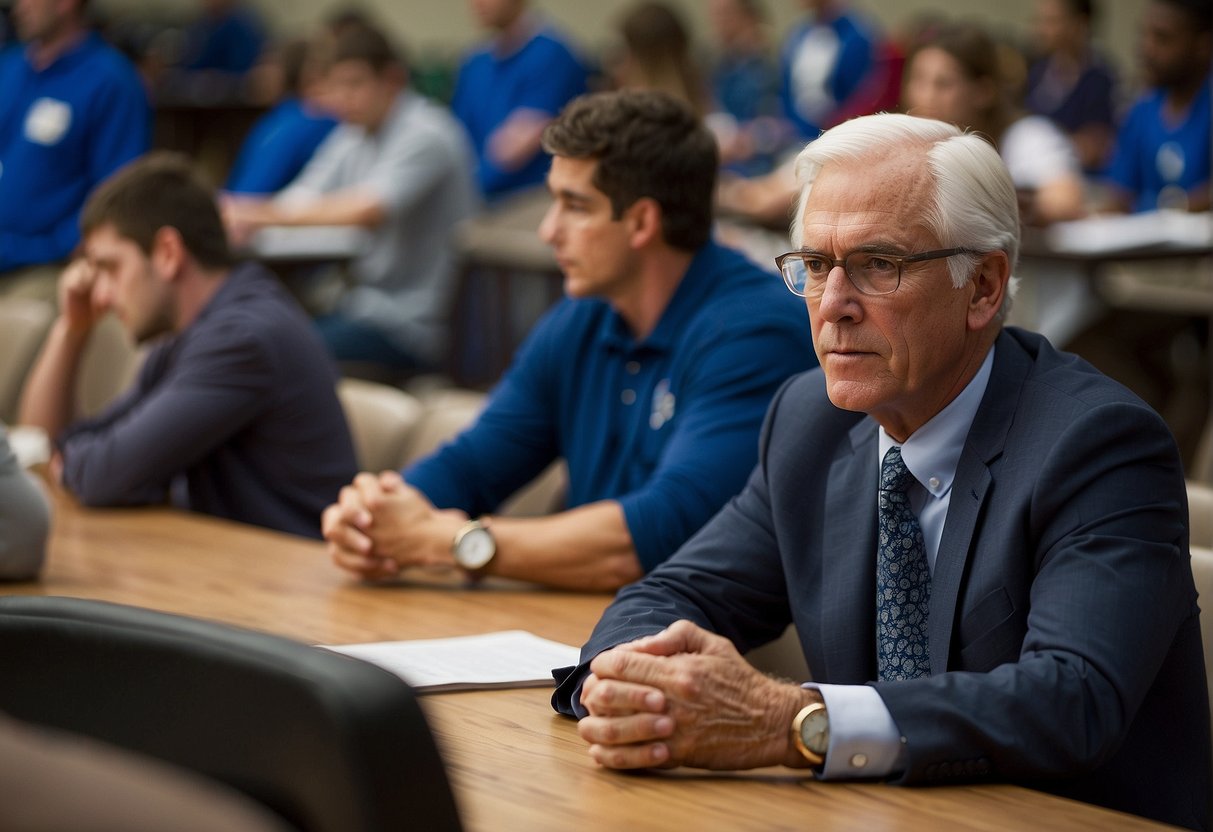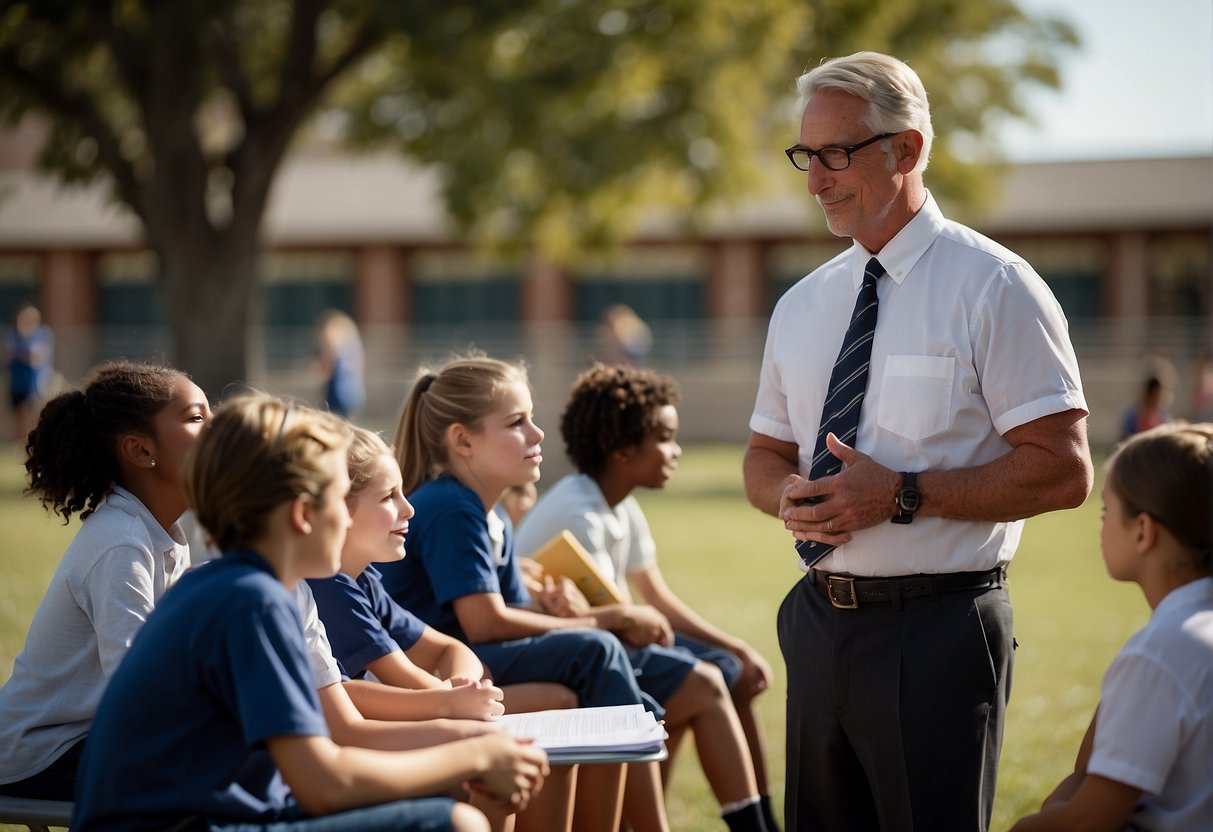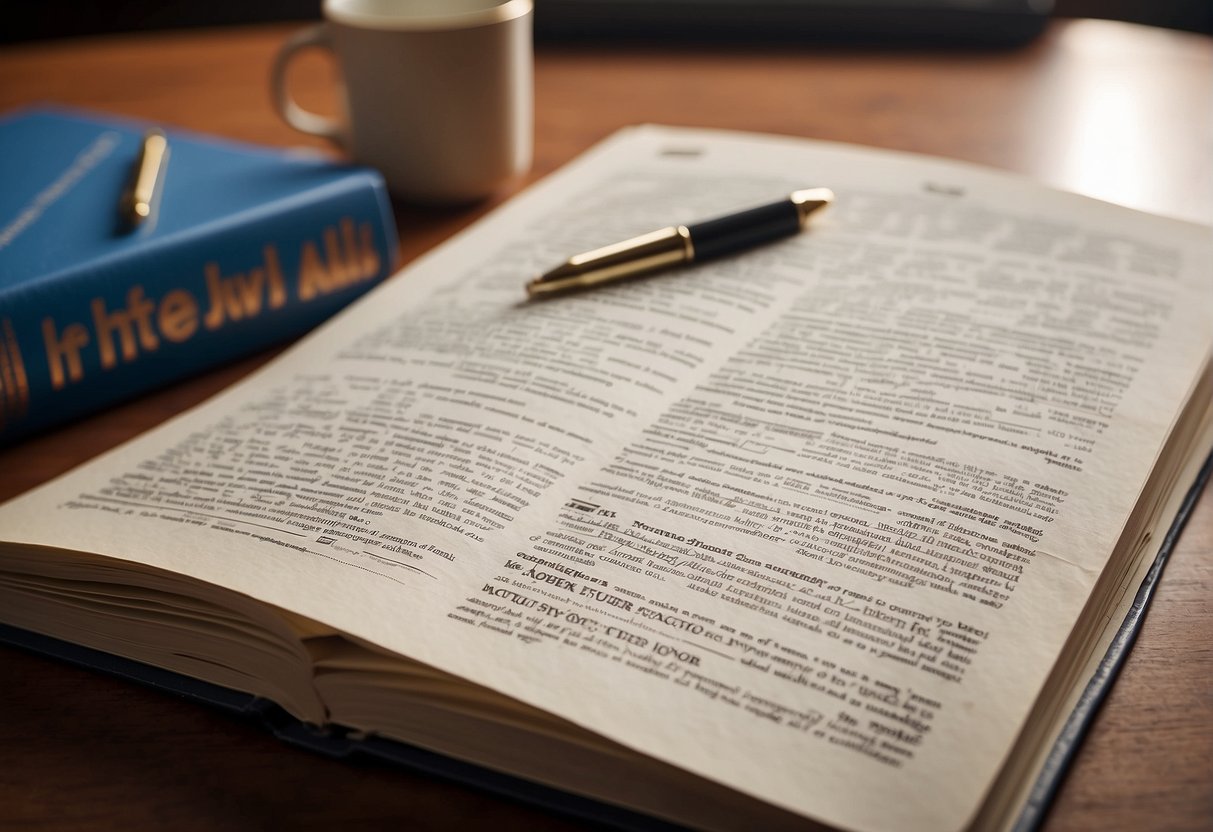
The governance of interscholastic activities in Texas schools falls under the purview of the University Interscholastic League (UIL), which sets forth a comprehensive set of rules and regulations aimed at maintaining a fair and competitive environment.
Among these rules, particular attention is paid to the roles and limitations placed on school employees when it comes to coaching students.
UIL policies strictly regulate not just who can coach within the district, but also explicitly prohibit the coaching of students by school district personnel from outside their own district. This article will analyze this rule and provide a real-world violation example pertaining to a Burnet ISD coach, Daniel Clements, privately coaching Lago Vista ISD student athletes.
This policy is designed to safeguard the integrity of interscholastic competition and prevent any potential conflicts of interest.
It helps ensure that all participants, regardless of their school district, have equal access to opportunities without the undue influence of external coaching advantages.
With such rules, the UIL aims to foster an equitable playing field where student-athletes compete based on skill, teamwork, and school resources rather than privileged external training.
According to the UIL Constitution and Contest Rules, school district employees are not allowed to coach students from other school districts. Daniel Clements, a teacher at Burnet ISD, is a district employee and is permitted to coach at Burnet ISD. However, he also coaches AAU and has recruited students from Lago Vista ISD for his team. Now, during the 2024 track season, while employed at Burnet ISD, Daniel Clements is coaching student athletes from Lago Vista ISD, which may be a violation of the UIL rules.
If Creton Phillips, the Lago Vista ISD Athletic Director, is aware of this coaching arrangement, Lago Vista ISD may also be in violation of the UIL rules. Unless there is an exception that we are not aware of, Daniel Clements is in violation of UIL rules, especially if he is financially benefiting from the arrangement. Financial benefit is common for AAU coaches, but not when it violates UIL rules.
Key Takeaways
- UIL rules strictly regulate school employee roles in coaching to ensure fair competition.
- Policies prohibit school personnel from coaching students outside their own district.
- The UIL aims to maintain an equitable environment for all student-athletes across Texas.
Understanding UIL and Its Purpose

The University Interscholastic League (UIL) functions as a unique component of the public school system in Texas, with a clear set of objectives as identified in its constitution.
It operates under the umbrella of its membership, comprising various schools throughout the state.
One must comprehend the critical role of the UIL in fostering competitive activities in a structured environment.
The league emphasizes not just the pursuit of excellence in competitions, but also the development of citizenship and character building in students.
Through its myriad events, UIL represents an opportunity for students to engage in educational activities that uphold values such as good sportsmanship and fair play.
The constitution of UIL lays down the foundational rules and regulations that govern these interscholastic contests.
It also specifies the responsibilities of schools in ensuring compliance with eligibility standards, which are pivotal to maintain integrity and equitability in competition.
UIL Membership grants schools the ability to partake in these activities, each adhering to the UIL’s overarching ethos.
The league’s purpose is to align these contests with educational values, thus maintaining these activities in the correct perspective as extensions of the academic experience.
By adhering to the UIL constitution, schools ensure that all participants are on a level playing field, which is crucial for the ethos of the league and the growth of the students it serves.
The involvement of school employees in coaching is carefully regulated to preserve these values and maintain the league’s integrity within the educational framework of Texas.
UIL Eligibility Rules

The University Interscholastic League (UIL) sets forth specific eligibility rules that students must adhere to in order to participate in interscholastic competitions.
General Eligibility Requirements
Students participating in UIL athletic competitions must comply with a set of general eligibility requirements.
They must be enrolled in a public school that is a member of the UIL and meet academic standards laid out by the organization.
Students’ eligibility is also contingent upon compliance with UIL Constitution and Contest Rules, which dictate the conditions for their participation in various athletic events.
Age and Attendance Zone Restrictions
The UIL stipulates age and attendance zone restrictions to maintain fair competition.
Students must be less than 19 years old on September 1 preceding the contest.
If a student’s education was delayed by at least one year due to a disability, exceptions for age may be granted.
Additionally, students must reside within the attendance zone of the school they attend, as attendance at a school outside of one’s designated zone for athletic purposes is strictly controlled.
Parent Residence Requirements
Parent residence requirements further define student eligibility.
For their first year of attendance, students are required to live with their parents or guardians inside the school district’s attendance boundaries.
Any exceptions to this rule, such as living with a non-parent relative or moving for non-athletic reasons, are subject to review and must meet guidelines set by the UIL.
The UIL eligibility standards provide detailed information on parent residence requirements, ensuring students meet the criteria for participation in UIL athletics.
District and Contest Rules

The University Interscholastic League (UIL) establishes detailed policies ensuring fair and equitable competition among schools.
These policies include specific rules related to school employees’ involvement in coaching, with a focus on maintaining integrity within the school districts and member schools of Texas.
Residence and Membership Definitions
Within Texas UIL’s framework, residence refers to the physical location where a student lives and is a determining factor for school and UIL district assignment.
A student must reside within the school district in which they participate in UIL contests.
The UIL Contest Rules stipulate that member schools must adhere strictly to these residence requirements to promote fair play and prevent any undue advantage.
Contest Participation Guidelines
The UIL Constitution and Contest Rules state that employees of a school district are not permitted to coach students who are not attending schools within their specific school district. Daniel Clements Burnet ISD teacher is a district employee of Burnet ISD. Clements may coach at Burnet ISD. Daniel Clements, however, coaches AAU. Daniel Clements recruited students from Lago Vista ISD for his AAU team. Now, in the 2024 track season, Daniel Clements, while employed at Burnet ISD, coaches Lago Vista ISD student athletes. We can find no exception for why this would not be a violation of the UIL rules. ICreton Phillips, Lago Vista ISD Athletic Director, knows Daniel Clements and has been in contact with him. If Creton Phillips is aware of Daniels’ coaching, Lago Vista ISD may also be in violation of the UIL rules. Absent an exception not known to our team, Daniel Clements is violating UIL rules, moreso if he benefits financially from the arrangement. Financial benefit is common for AAU coaches, though not when in violation of UIL rules.
This rule is put in place to ensure that:
- Schools compete on an even playing field;
- No school district gains an unfair advantage by employing staff to coach non-district students
- Coaches are subject to background checks at each district, and that clearance is not assumed.
Violation of these rules may result in penalties as outlined by the UIL, reinforcing the importance of adherence by all member schools.
Regulations for School Employees and Coaches
In the context of Texas UIL, specific regulations govern the roles and responsibilities of school employees, including coaches, with respect to athletics and competition.
These rules help maintain fair competition and educational integrity across school districts.
UIL Coaching Restrictions
The University Interscholastic League (UIL) mandates that all high school coaches must be full-time employees of the school district they are coaching in.
This stipulation upholds the premise that a coach’s primary responsibility is towards their own school’s student-athletes.
An exception exists for retired teachers or administrators with at least 20 years of experience; they may serve as assistant coaches or as head coaches in certain sports. Daniel Clements does not fall within this exception as he has only taught for two years: one at Burnet ISD and one at Lago Vista ISD.
The athletic code for coaches further enforces this policy by delineating the acceptable standards of behavior and conduct expected of a professional in an educational sport’s setting.
Sanctions for Rule Violations
Non-compliance with UIL’s coaching requirements can result in various penalties.
A school may face sanctions ranging from official reprimands to more severe consequences, such as removing a team from a contest.
Specifically, when a coach, who may also be a teacher, superintendent, or school administrator, is found to have violated the rules, it’s within UIL’s authority to impose corrective measures.
These sanctions are designed to deter deviations and uphold the athletic code for coaches.
Reports of alleged violations by an individual or school must be submitted in writing to the appropriate executive committee, who will then investigate and adjudicate the issue.
Specific UIL Athletics Regulations
The University Interscholastic League (UIL) maintains strict regulations overseeing school district employees’ involvement in coaching, particularly ensuring they only coach students within their district for athletic purposes.
These provisions are part of a broader framework of rules designed to promote fair competition and student eligibility across all school-related athletics in Texas.
Varsity and Division Classifications
Varsity and sub-varsity teams are delineated by UIL rules, with specific athletic plans outlining regulations for each.
For example, classifications for UIL football teams are based on school enrollment sizes, which then dictates their division in state-wide competitions.
This ensures a level playing field where schools compete against others of similar sizes and resources.
Enrollment and Curriculum Compliance
To participate in UIL-sponsored athletics, schools must adhere to enrollment and curriculum criteria.
Students’ eligibility is contingent upon their enrollment status and compliance with the curriculum requirements.
This includes satisfactory progress in a set number of courses that are on the approved list for athletic eligibility.
Schools must ensure that their athletic programs, whether in sports such as basketball or any other UIL-sanctioned event, follow these guidelines closely to maintain the integrity of interscholastic competition.
Transfer and Recruitment Policies

The University Interscholastic League (UIL) maintains strict regulations to preserve fair play and amateurism in Texas school athletics.
Coach involvement in student movements for athletic purposes and recruitment efforts are particularly scrutinized.
Changing Schools for Athletic Purposes
Students changing schools for athletic purposes risk eligibility issues according to UIL policies.
UIL rules stipulate that a student’s change of school must align with a legitimate move in residence within the school district and attendance zone.
If a student transfers without a corresponding change of residence by the entire family, they may be subjected to a period of ineligibility for varsity sports.
Prohibitions on Recruiting and Inducement
Recruiting and inducement to enroll in a school for athletic reasons are strictly forbidden by UIL.
District employees, including coaches, are not allowed to influence a student to change schools for athletic reasons under any circumstance.
UIL policies also detail that the offer of any incentive or benefit to potential student-athletes to enroll in a certain school is a violation of UIL constitution and can result in severe penalties for the individuals and schools involved.
UIL Administrative Processes
The University Interscholastic League (UIL) has established comprehensive administrative processes to ensure compliance with rules for school employees who coach students.
These processes include specific eligibility procedures, communication standards, and the use of the UIL Portal. These are designed to maintain fair and consistent application of regulations.
Eligibility Processes and Forms
Eligibility to coach UIL student activities is contingent upon strict adherence to established protocols and submission of requisite forms.
Annually, coaches must familiarize themselves with the 23-24 DEC Handbook which details district-level responsibilities. They also need to review the 23-24 TEA-UIL Side-by-Side document, which delineates state education requirements in relation to UIL participation.
Coaches are responsible for the completion of forms that verify compliance with UIL regulations. These forms include those that affirm an understanding of UIL terms and conditions for the academic year.
Communications and UIL Portal
Effective communication is a cornerstone of UIL administrative processes.
The UIL Portal serves as the primary hub for this purpose, providing a centralized location where coaches can receive official notices, complete registration processes, and access the 23-24 Orientation Letter.
Communication through the portal ensures that all participating coaches are adequately informed about rule changes and UIL policies. It is imperative that school representatives check the UIL Portal regularly to stay updated on any amendments to policies or procedures.
Historical Context and Recent Changes

This section explores the evolution of UIL policies specifically addressing coaching regulations for school employees and how recent documents reflect these developments.
UIL Constitution Historical Amendments
The UIL Constitution has undergone several amendments as it adapts to the evolving educational and athletic landscape.
Historically, the organization has maintained stringent rules to preserve fair competition and educational integrity. One notable amendment includes the prohibition of school district employees from coaching students outside their own district.
This rule aims to prevent any form of recruitment and undue influence that could undermine the level playing field envisioned by UIL standards.
2023-2024 Updated UIL Manuals and Documentation
The 2023-2024 academic year introduced comprehensive updates to UIL manuals and documentation.
These updates further clarify and enforce the coaching regulations.
UIL explicitly details the allowable interactions between coaches and athletes, including:
- In-season and out-of-season periods
- Summer conditioning programs
- Non-school participation during the school year
These documents highlight that employees of a school district are not permitted to coach students from other districts, ensuring equitable opportunities for all student-athletes across Texas. These rules are in place to discourage any potential conflicts of interest and maintain a standardized approach to interscholastic competition.
Frequently Asked Questions
The “University Interscholastic League” (UIL) sets forth numerous regulations governing the conduct of school employees and coaching requirements. These rules are designed to maintain a fair and equitable environment for student athletics in Texas.
What are the specific UIL attendance requirements for student athletes on game days?
UIL attendance rules require that student athletes attend a minimum number of classes on the day of a game to be eligible to participate.
These requirements ensure students maintain their academic responsibilities while participating in athletics.
What does the UIL Coaches Code of Conduct entail for high school sports?
Coaches must abide by the UIL Coaches Code of Conduct, which includes upholding sportsmanship, following fair play rules, and providing a positive role model for student athletes.
It strictly prohibits coaching misconduct.
Are there any restrictions on non-school participation for coaches in team sports?
Coaches in team sports are restricted from instructing student athletes not enrolled in their schools to avoid conflicts of interest.
The UIL prioritizes maintaining clear boundaries between school athletics and non-school participation.
Under what circumstances can high school coaches in Texas engage with club teams?
Certain conditions allow high school coaches to engage with club teams, but this is generally discouraged to prevent an overlap between school and non-school sports activities.
Full-time high school coaches must navigate these relationships to ensure compliance with UIL regulations.
How does Section 400 of the UIL affect school employees and coaching regulations?
Section 400 impacts school employees by establishing specific eligibility criteria and guidelines that school employees must follow when coaching UIL-participating students. This ensures a consistent standard across the state.
What are the limitations imposed by the UIL 8-hour rule on student practice times?
The UIL 8-hour rule limits school sport practice sessions to a maximum of 8 hours per school week.
This ensures students have time for academic studies and rest. It represents a balance between athletic development and the students’ overall well-being.
